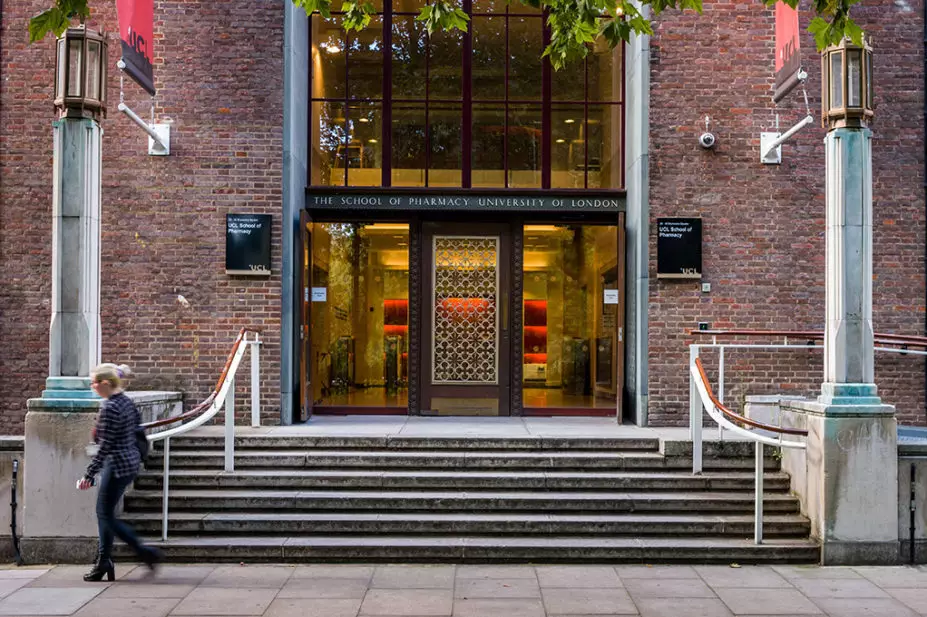
Robert Evans / Alamy Stock Photo
Most UK pharmacy schools say they are committed to reforming their MPharm degree curriculums to make them more inclusive, an investigation carried out by The Pharmaceutical Journal has revealed.
Responses to a freedom of information (FOI) request sent in September 2021 to the 31 schools of pharmacy in the UK revealed that 24 of the 28 schools that responded (86%) were committed to programmes to ‘decolonise’ their curriculums.
Of the remaining four, Cardiff University and the University of Huddersfield did not explicitly say they were committed to decolonisation but did say they had a programme to review their curriculum for equality, diversity and inclusion.
Responses from the remaining two — Queens University in Belfast and the University of Sunderland — stated that they did not have the specific information requested but did highlight that there were university-wide approaches in place.
For those institutions whose responses said they were committed to decolonisation, planned changes included additional learning on health inequalities and race, cultural competence and revising modules on dermatological conditions to incorporate a wider range of skin tones.
The University of Portsmouth’s response said that it had taken steps to include content that encouraged students to consider a diverse population including sessions on “how a patient’s and their own cultural background, beliefs, religions, past experiences … may affect prescribing decisions”.
Several schools also set out specific timelines for their work; for example, the University of Bradford said that it was embarking on a “total system decolonisation”, which it expected to be completed by early 2023.
Meanwhile, the University of Strathclyde in Glasgow, Scotland, said that it expected that its course modules would be “revised and refreshed” over the next two years.
The University of Nottingham completed a project to decolonise its curriculum, with a group of students reviewing all aspects of the course for racial inclusion, and publishing their results in May 2021.
The move to decolonise comes as universities are under pressure from the Office for Students to modernise their syllabuses to address the attainment gap between white students and those from ethnic minorities.
An analysis of data by The Pharmaceutical Journal published in July 2020 revealed for the first time that a significantly lower proportion of black, Asian and minority ethnic (BAME) students are awarded a higher MPharm degree, compared with their white counterparts.
A spokesperson for the Black Pharmacists’ Collective, a students’ organisation, described the results of the FOI as “encouraging”.
“Pharmacy is a constantly developing field and teaching should reflect this, acknowledging that as time goes on our understanding and practices can evolve,” the spokesperson said.
“Our teaching must reflect the populations we will face as healthcare professionals, and by not addressing this we fail our patients. Schools need a commitment to implementing this as a long-standing practice integrated into all processes so lasting change can be seen.”
Mahendra Patel, a member of the English Pharmacy Board and pharmacy research lead for inclusion and diversity for the Platform Randomised Trial for Treatments in the Community for Epidemic and Pandemic Illnesses (PRINCIPLE), welcomed the decolonisation of the pharmacy curriculum, but said it needed to be done “a long time ago”.
“It is still a most welcome and positive step in the right direction for everyone and at all levels, and we can only continue to build on that platform over time; this has to become a culture of everyday practice and not an overnight fix – that enables us as healthcare professionals, to better understand cultures and differences, but in addition to look at how that can impact on people’s health where we are delivering those services and [how we can work] to reduce health inequalities that we continue to see as prominently as ever before.”
He added that curricula should not just be looking at ensuring inclusivity of ethnic minority groups but also considering other protected characteristics and marginalised groups, such as those with a disability or transgender people.
“It should be a multidirectional and systemic approach clearly visible through its complexity and valued for its importance throughout the curriculum — it applies to all levels of pharmacy practice and we need to be dealing with it uniformly at the same time, from year one, progressively building through the years.”
The Pharmacy Schools Council said it had nothing to add to its previous statement on supporting ethnic minority students in July 2020, which said teaching practices and materials should be examined “so as to ensure that black and minority ethnic patient communities are properly reflected throughout the curriculum”.
Box 1: What does ‘decolonising’ actually mean?
‘Decolonisation’ describes an academic movement happening across universities and other institutions to highlight and address long-standing structural inequalities resulting from historical colonial influences.
It involves interrogating all aspects of the curriculum for evidence of these influences and provides an opportunity to include a wider range of perspectives and voices in teaching materials.
The aim of decolonisation is to make teachers and students aware of any unconscious biases and remove colonial references to make the curriculum fairer, as well as to improve the experience and sense of belonging for students from ethnic minorities.
Box 2: Universities’ responses
“Committed to decolonisation“:
Aston
Bath
Bradford
Brighton
Central Lancashire
East Anglia
Hertfordshire
Keele
King’s College London
Kingston
Lincoln
Liverpool John Moores
Manchester
Medway
Newcastle
Nottingham
Portsmouth
Reading
Robert Gordon
Strathclyde
Sussex
Ulster
University College London
Wolverhampton
“Have a programme to review their curriculum for equality, diversity and inclusion“:
Cardiff
Huddersfield
“Not able to provide any information“:
Queen’s University, Belfast
Sunderland
Did not respond in time:
Birmingham
De Montfort
Source: Request for information under the Freedom of Information Act, sent 15 September 2021
- Box 2 in this article was corrected on 22 November 2021 to remove Swansea school of pharmacy from the category ‘Did not respond in time’ as they were not included in the original freedom of information request sent out by The Pharmaceutical Journal


